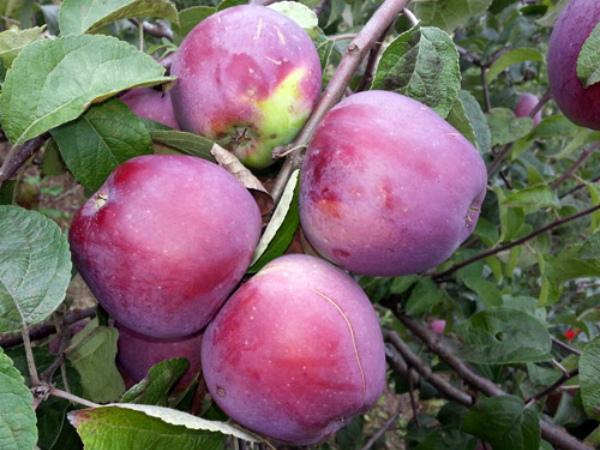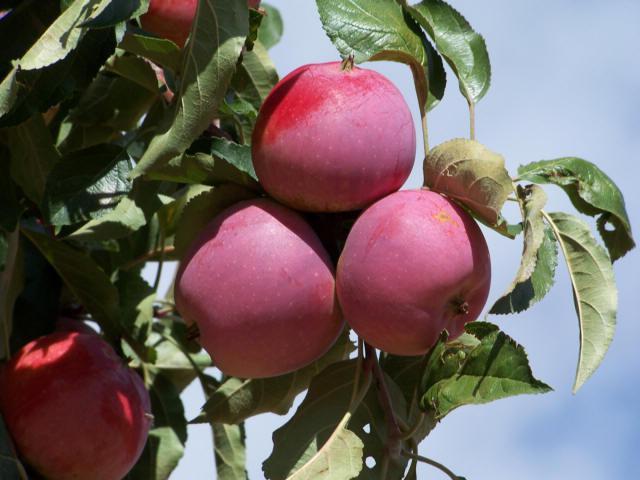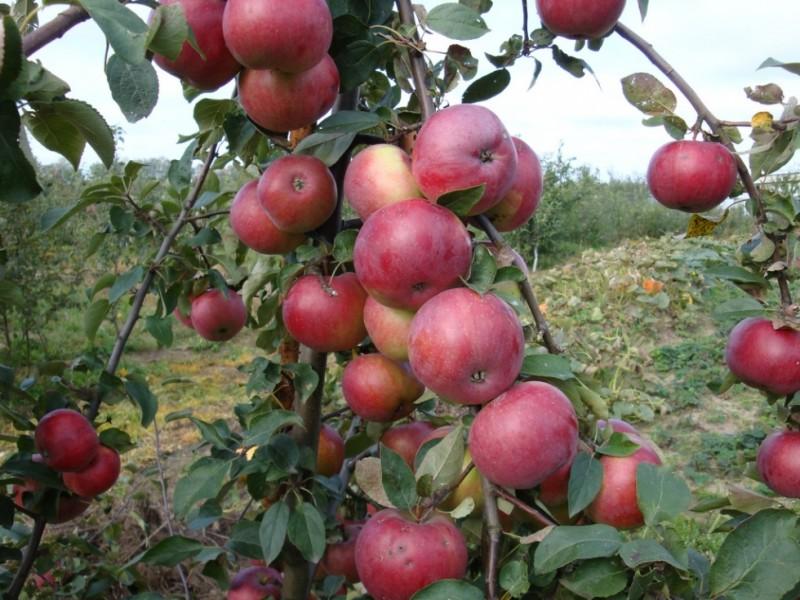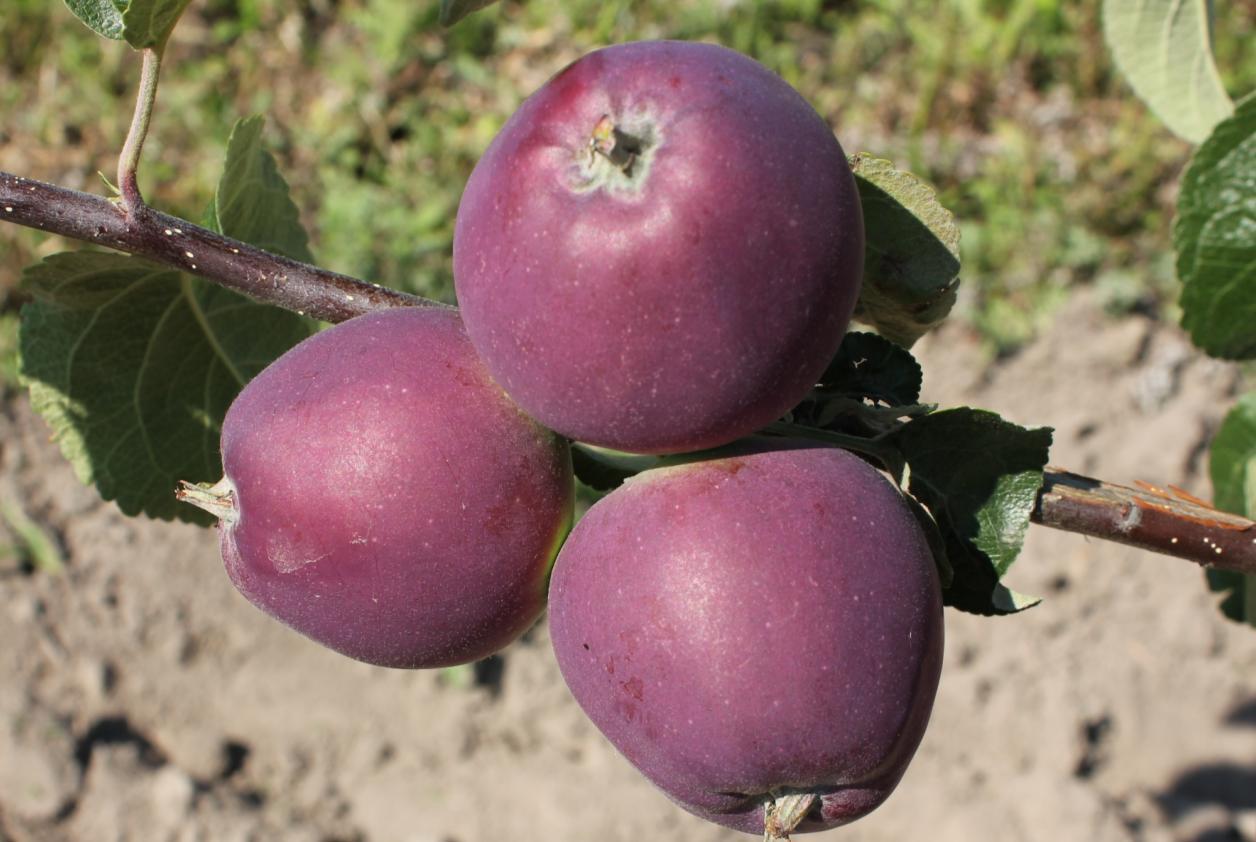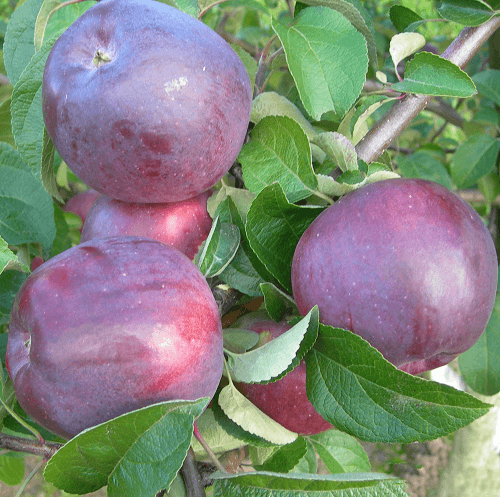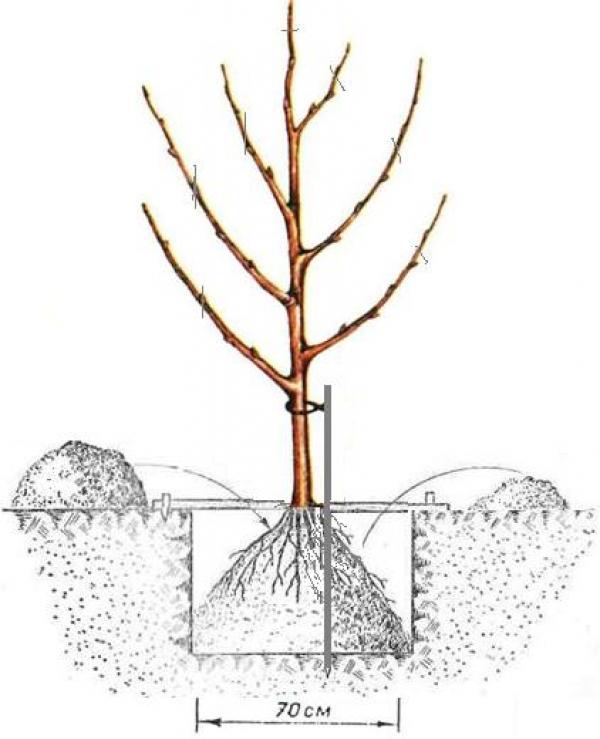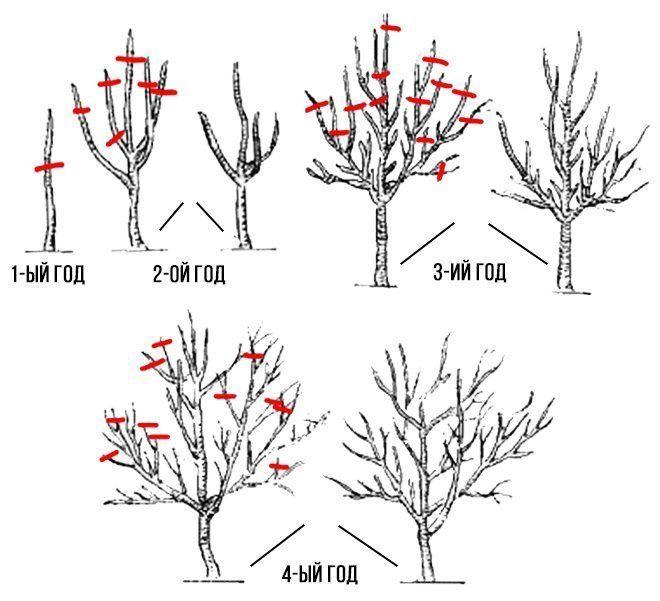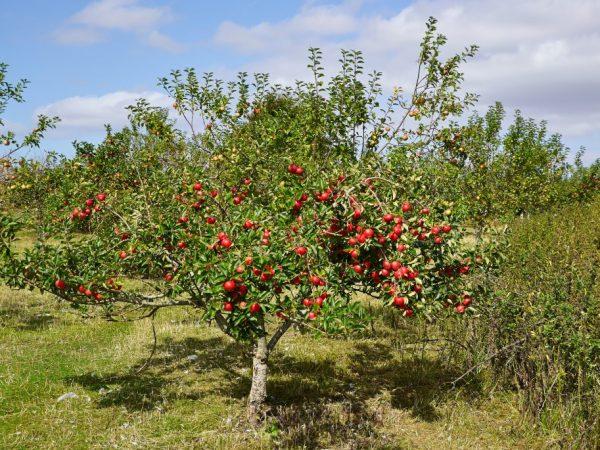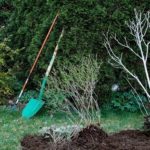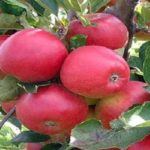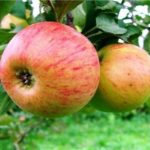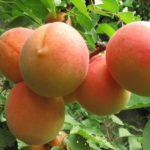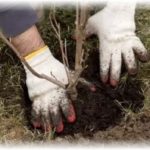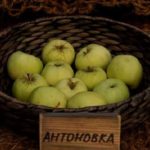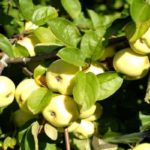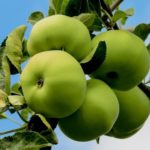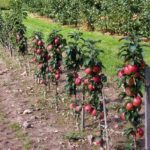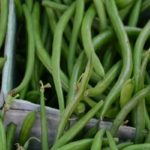The apple tree is one of the most popular crops. It is almost impossible to find a summer cottage without a couple of fruit trees. The popularity of the late-ripening Imant apple tree is explained by the possibility of long-term storage of the crop. A big plus is also resistance to scab damage. The advantages of the variety are appreciated by gardeners from different countries (Moldova, Russia, Ukraine).
- History of the development of the Imant variety
- Distinctive features and benefits of culture
- Description of the apple tree
- External characteristics
- Tree height and crown diameter
- Shape of leaves and flowers
- The fruit and its tasting characteristics
- Disease resistance
- Resistance to frost and drought
- Lifespan of a tree
- Productivity
- Ripening and fruiting period
- Beginning of fruiting
- Who is the pollinator of the variety?
- Flowering period
- Apple ripening time
- Harvest and use
- How to grow an apple tree in the garden
- Landing dates and rules
- Features of agricultural technology
- Landing
- Watering
- Top dressing
- Trimming and shaping
- Treatment with prophylactic agents
- Cover for the winter
- Subspecies and options
- Dwarf
- Clone
History of the development of the Imant variety
An interesting variety of apple tree was bred by a group of Belarusian breeders in 1999 (the Antey and Liberty varieties were used as a basis). Although the Imant apple tree received official recognition only in 2010.
Distinctive features and benefits of culture
The main advantages of the variety are frost resistance (down to minus 25 ° C) and resistance to scab. Other advantages worth noting:
- precociousness;
- excellent survival rate of seedlings;
- compact crown that does not require careful shaping.
The tree is slightly affected by crown and bark diseases (bacterial canker, European canker).
Description of the apple tree
A high-yielding apple tree does not require special growing conditions and is suitable for planting in small dachas.
External characteristics
Fruits of unusual colors ripen on the trees. The apple is covered with a dark red skin with a purple tint.
Tree height and crown diameter
A round, slightly elongated, dense crown with a diameter of 2.5-3 m is formed on a strong trunk. The branches do not require regular pruning and thinning.
Shape of leaves and flowers
Thick and long cuttings produce dense, standard-shaped leaves with a pointed tip. The foliage is a rich green color. Long stamens grow on large, five-lobed white flowers.
The fruit and its tasting characteristics
Imant apples have a round shape with a slightly elongated top.The large fruits are almost identical in size and weigh 170-190 g. The juicy pulp of the apples has a vanilla-cream tone. The sweet taste of the fruit is piquantly diluted with sour notes.
Disease resistance
The variety is resistant to some diseases (powdery mildew, scab). To prevent the occurrence of other diseases, it is recommended to carry out preventive treatment in a timely manner.
Resistance to frost and drought
The variety is frost-resistant. According to gardeners, trees can withstand drought on hot days.
Lifespan of a tree
This indicator for the Imant variety is average - trees, with good care, grow and develop for 15-20 years. But the fertility of apple trees over 15 years old decreases.
Productivity
The variety is productive - from one mature tree you can get 20-25 kg of fruit. The first decent harvests are harvested from apple trees that are 2-3 years old.
Ripening and fruiting period
For all gardeners, important characteristics of fruit tree varieties are the ripening time and the shelf life of the crop.
Beginning of fruiting
The Imant variety is fast-growing - the first harvests are harvested from 2-3-year-old trees. The advantage of the variety is regular fruiting, there is no alternation of seasons.
Who is the pollinator of the variety?
Flowers are pollinated mainly by bees and bumblebees. Other insects and gusts of wind also help.
Flowering period
The Imant variety is no different from other apple trees in this respect - the trees bloom at the end of May. The phase of abundant and friendly flowering lasts about a week and a half. The pinkish buds open into white flowers.
Apple ripening time
The fruits begin to ripen in the second half of September. It is difficult to determine the state of ripeness by the appearance of apples.Experienced gardeners suggest assessing the ripeness of fruits by the color of the pulp. To do this, a solution of iodine is dripped onto the cut - in unripe fruits, the pulp acquires a dark blue tint, while ripe ones do not change color.
Harvest and use
Harvesting begins in the second half of September and ends with the onset of the first October frosts. The real taste of the fruit develops over time, so the harvest is immediately stored. Apples are consumed mainly fresh.
How to grow an apple tree in the garden
To grow a luxurious garden of fruit trees, it is important to choose the right seedlings and provide the trees with proper care.
Landing dates and rules
It is recommended to plant seedlings in spring in areas with a temperate climate. Autumn days are perfect for planting the Imant apple tree in the southern regions. The seedling is placed in a hole 85-90 cm deep, 60-65 cm in diameter. A distance of 3-3.5 m is maintained between the holes.
Features of agricultural technology
When growing apple trees, standard agricultural techniques are used. Trees develop better on loamy soils. Therefore, clayey soils are “diluted” with a mixture of peat and sand. Sandy soil is supplemented with humus or manure.
Landing
It is advisable to prepare the pits in advance (about a week in advance). Planting of seedlings is carried out in several stages:
- the bottom is covered with a layer of drainage (pebbles, expanded clay, broken stone);
- at the bottom they form a low hill of earth;
- the seedling is placed on the top of the hill, and the hole is filled with soil mixture.
When planting, the root collar is not covered with soil. The planting is watered with warm, settled water.
Watering
In the first years of life, seedlings are watered twice a week. You cannot allow moisture to stagnate in the soil, so after watering the soil is loosened and mulched.Mature trees need abundant irrigation during periods of flowering and fruit formation.
Top dressing
If the soil was properly fertilized during planting, fertilizing begins next season. It is recommended to use organic matter and mineral supplements. In early spring, the soil is fertilized with urea. At the beginning of apple tree flowering, use a mixture of urea (100 g), potassium (50 g) and superphosphate (80 g), diluted in 20 liters of water. At the end of flowering, a nitrophos solution is used.
Trimming and shaping
Imant apple trees do not require a specific crown formation. They simply shorten shoots that are too long and trim off branches growing inside the crown. Sanitary pruning comes down to removing diseased, dry and damaged branches. Work with branches is carried out in autumn or spring, the cuts are lubricated with garden varnish.
Treatment with prophylactic agents
To protect trees from diseases, it is recommended as a preventive measure to spray the crown with fungicides Nitrafen, Topaz - before flowering and after the appearance of the ovary. Of the insects, the greatest damage is caused by moths, caterpillars, mites, and aphids. For preventive treatment of foliage, the drugs Dicofol and Karbofos are used.
Cover for the winter
The Imant apple tree variety is frost-resistant, but the trees need to be prepared for winter: the trunk circle is cleared of fallen leaves, the soil is watered abundantly and mulched, and the trunk is wrapped in burlap.
Subspecies and options
Seedlings of the Imant variety may differ in some features. There are dwarf subspecies and clone.
Dwarf
The trees grow short, the first apples can be picked from two-year-old seedlings. However, apple trees that are about 5 years old produce full harvests.
Clone
Apple trees on clonal rootstocks grow up to 2 m high and form a compact crown.The trees bear fruit well and consistently and are excellent for planting in small areas.
There are no special requirements for caring for Imant apple trees; standard work is performed - watering, fertilizing. Therefore, even novice gardeners can harvest voluminous harvests.

